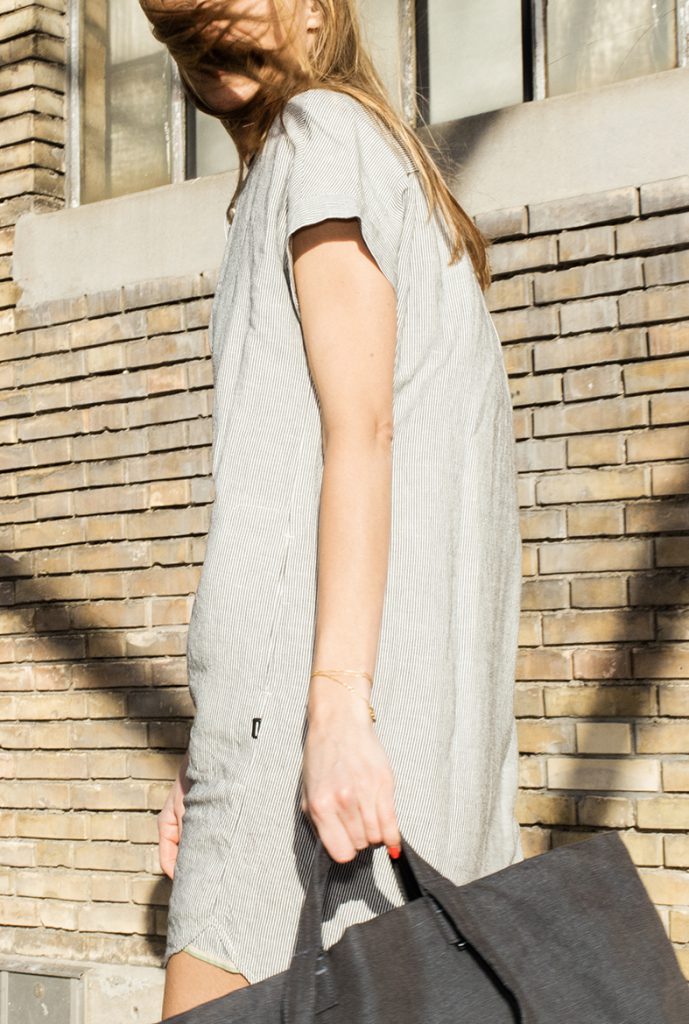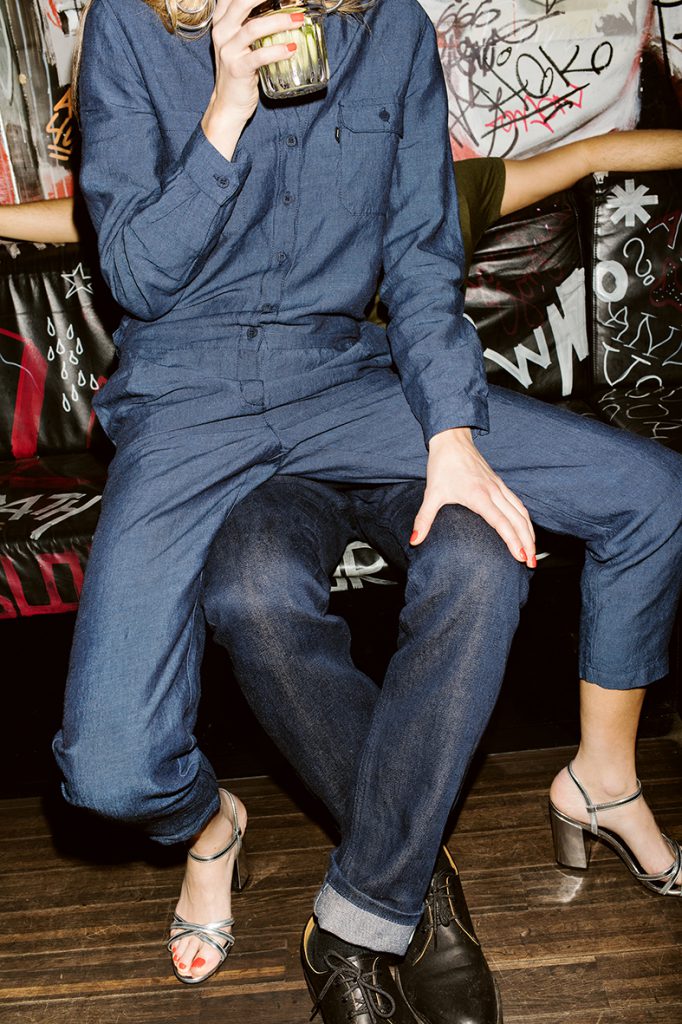Textile design with a conscious soul
Text by guest editor and multi-media designer Tania Grace Knuckey
The future is here and it is looking promising! The ecological, biodegradable and sometimes even vegan, slow fashion currently available will lighten hearts and make us look pretty gorgeous too. This new direction in ethical fashion is on the rise – a soon-to-be-norm, rather that the exception? We certainly hope so!
At the forefront of this industry-changing movement in Switzerland is Freitag who have launched their 100% biodegradable fashion line. The raw materials and production of each garment is entirely from Europe. Their F-shops stock t-shirts, jeans, dresses, aprons and such, all devoid of cotton in favour of linen, hemp and modal, a wood derivative. Initially the aim was to create biodegradable, resistant work-clothes for their factory employees but their clothes are now available for us all to experience. Freitag clothes are timeless and robust and yet will decompose within months once in the compost pile.

With similar ethics and bearings to that of Freitag is Avani, a fashion label from Lausanne. Made from wood, even the buttons are environmentally friendly and all of the sourcing and production is made within a 280km range of Lausanne. Avani pieces are simple, yet feminine and make for solid basics in any wardrobe.
Brands of this type are favouring wood derived-fabrics such as modal and tinsel as well as natural fibres like linen, hemp, coco fibres and Pinatex (a pineapple derivative) over cotton as the latter uses up to 2’700 litres of water and releases 5,2kg of CO2 for the production of a sole t-shirt. Vulnerable to insects, cotton farming calls for a heavy use of pesticides and insecticides whilst cotton alternatives do not.
In 2015, The True Cost documentary was a catalyst for change in the fashion world as behind the glitz and glamour it exposed fashion’s sombre side, its oppressing control on developing countries and damaging impact on our planet. Soil and water pollution, pesticide and insecticide contamination, the spread of diseases and even death all result from the fast fashion industry. It is therefore not surprising that today we are experiencing a rise in slow-fashion initiatives, brands that favour quality over quantity, local over global, recyclable over ephemeral, lasting not transient.
Fortunately for us, today’s generation of talented fashion designers are increasingly ethical minded which means that we can enjoy fashion forward looks whether they be biodegradable, vegan-friendly, recycled or repurposed. Sanikai, a Zürich-based brand does this seamlessly with their playful and unique pieces.
‘Not Charity, Just Work’ is the slogan of The Ethical Fashion Initiative of the International Trade Centre located in Geneva and which promotes fair-trade and equal employment between Western designers and micro-businesses and advocates for independent brands from marginalised communities in Africa, Haiti, the West Bank and Cambodia. Initiatives such as these are empowering to the workers, many of whom are women, allowing communities to flourish and westerners an environment in which to deal with them in an ethical manner.
Slow Fashion is an opportunity to moderate the pace and reflect on our values, our future and the endless possibilities of an ethical, yet swanky lifestyle so grab your friends and get in line!


F-ABRIC Photography: © PeterHauser (2 first pictures)
AVANI Photography: © Avani (last pictures)
